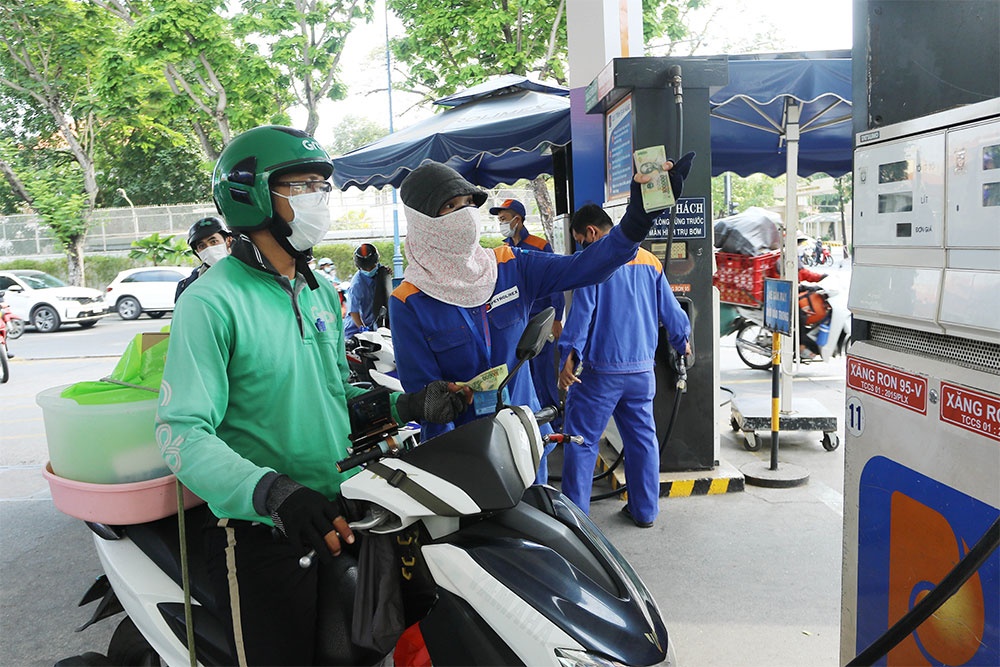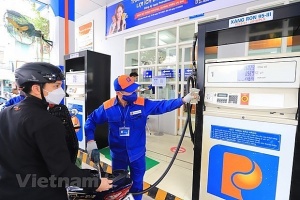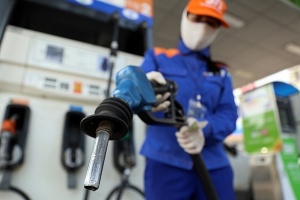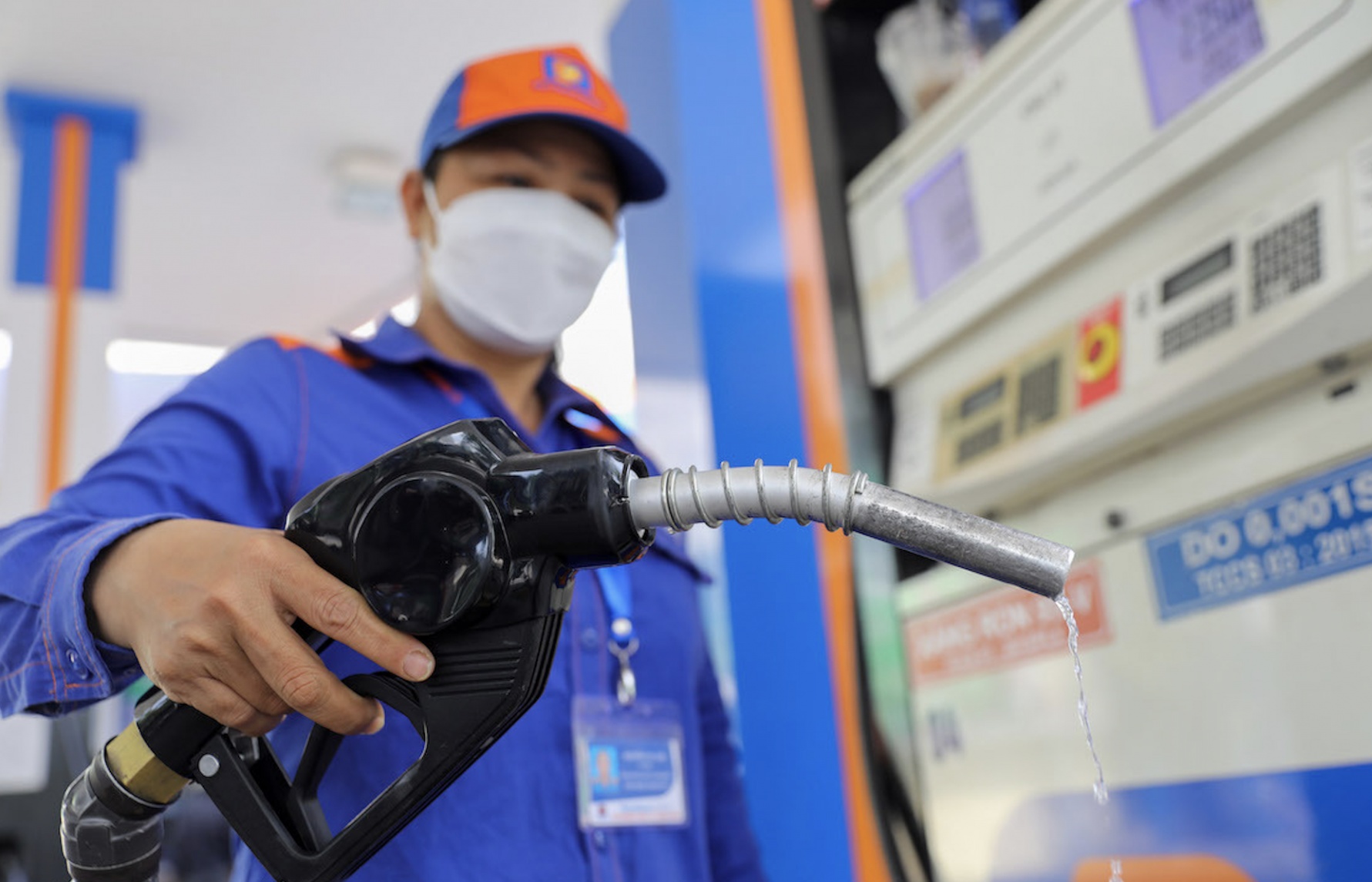Business weighs up petrol tax cut bid
Leaders of Binh Son Refining and Petrochemical Co., Ltd. (BSR) notified Vietnam’s state-run oil and gas group PetroVietnam in mid-November that operations would be halted for routine maintenance in March and April 2024.
BSR general director Bui Ngoc Duong is concerned that, assuming oil prices of $70 per barrel, a 50-day machine shutdown could reduce the company’s revenue by $473-990 million and profits by approximately $41.3 million. Since its inauguration in 2008, the total duration of maintenance has been reduced annually from 60 days in 2011 to 51 days in 2020.
 |
“The crude oil and petroleum product markets remain volatile and complex,” said Duong. “Until the end of the first quarter of 2024, crude oil and product prices are anticipated to decline. However, the price differential between input materials and the crack margin is minimal, which renders high-capacity operation of the plant unfavourable.”
BSR maintained operations at 110 per cent capacity in 2023 to assure the domestic petrol market is supplied. The company, which controls about one-third of the petrol supply market in Vietnam, is apprehensive that competing with petroleum imported from South Korea will present additional challenges.
The establishment of a dependable petrol supply chain is a priority for governmental bodies, commercial enterprises, and indigenous consumers. President of the Vietnam Petroleum Association Bui Ngoc Bao said that the circumstances are extremely precarious since Vietnam imports petroleum from markets with varying tax rates.
“A sudden increase in imports due to favourable tax rates could harm the domestic industry,” Bao said.
Last month, the Ministry of Finance (MoF) submitted to the government a resolution on environmental protection tax rates for petrol, oil, and lubricants to apply in 2024. If approved, the new tax rate would be applied from January 1, with petrol (except ethanol) remaining at VND2,000 (8.40 US cents) per litre. Jet fuel, diesel oil, fuel oil, and lubricant oil would be set at VND1,000 (4.20 US cents) per litre.
According to the MoF, if the tax is not reduced, from January 1 the tax rate on petrol will double to VND4,000 (16.8 US cents) per litre; while diesel oil, fuel oil, and lubricant oil would also be doubled.
The policy of reducing environmental protection taxes on petrol and oil came into effect at the start of 2022, but is due to expire at the end of this year.
According to the MoF, reducing such taxes on petrol, oil, and lubricants in 2024 will contribute to reducing the increase in domestic petrol retail prices. The MoF expects that tax revenues for petrol and oil will decrease by about $1.61 billion and total state budget revenue (including VAT reduction) will decrease by about $2 billion as a result.
“Vietnam, as with 150 other nations, has implemented four taxes on petroleum products: special consumption, added value, environmental protection, and import; these account for 45-60 per cent of the selling price,” Bao of BSR explained. “Vietnamese petroleum importers prioritise importing petroleum from the ASEAN region for its incentives, but the source in this region is not abundant.”
Businesses may incur losses as a result of increased costs when they import from markets that impose most-favoured nation tariffs. In the interim, domestic petrol prices deviate significantly from global market prices and experience frequent fluctuations over a period of 7-10 days.
Dr. Dinh Trong Thinh at the Academy of Finance said that a short-term reduction of the environmental protection levy on petrol will not have a significant impact on the government’s emissions reduction plan, given the moderate increase in consumption.
“In addition, it is important to note that the reduction of environmental protection duties on petrol, oil, and lubricants does not contravene Vietnam’s adherence to international environmental obligations,” Thinh said.
Vietnam’s objective for the whole of 2023 is to maintain economic growth at 6-6.5 per cent and rein in inflation below 4.5 per cent, but Thinh said inflation will decline if environmental taxes on petrol and oil continue to be reduced.
“Comparing the first 10 months of 2023 to the corresponding period of 2022, core inflation rose an average of 4.38 per cent. The primary reason is that the average price of petrol in the domestic market fell by 13.24 per cent during the period, compared to the same period the previous year,” he explained.
Nevertheless, the economy is in need of solutions that can have a quick impact, and tax reduction is the policy that can have the fastest impact.
“At the present time, taxes comprise around 38 per cent of the retail price of petrol. An environmental protection tax cut will help reduce domestic petrol prices and, in turn, a portion of the input costs of businesses,” Thinh said. “It will also assist companies in lowering a portion of their input expenses. Additionally, now is an ideal time to enact fiscal policies that reduce, postpone, and defer taxes on strategic products like petrol.”
 | Petrol suffers too many taxes: experts Each litre of petroleum is subject to too many taxes, with burdens on businesses and consumers are increasing, according to industry experts. |
 | Vietnam faces petrol shortage risks Alhough the petrol situation in Vietnam is stable at present, a lack of investment, market barriers, and poor planning could potentially result in a shortage in the coming months. |
 | Vietnam slashes taxes on petrol imports The Ministry of Finance (MoF) formally implemented a new petrol import tax at the start of July in what it says is a periodic adjustment based on operational reality, with the ASEAN Free Trade Area's tax reduction plan being cited as the main factor influencing the reduction. |
What the stars mean:
★ Poor ★ ★ Promising ★★★ Good ★★★★ Very good ★★★★★ Exceptional
Related Contents
Latest News
More News
- Bac Ai Pumped Storage Hydropower Plant to enter peak construction phase (January 27, 2026 | 08:00)
- ASEAN could scale up sustainable aviation fuel by 2050 (January 24, 2026 | 10:19)
- 64,000 hectares of sea allocated for offshore wind surveys (January 22, 2026 | 20:23)
- EVN secures financing for Quang Trach II LNG power plant (January 17, 2026 | 15:55)
- PC1 teams up with DENZAI on regional wind projects (January 16, 2026 | 21:18)
- Innovation and ESG practices drive green transition in the digital era (January 16, 2026 | 16:51)
- Bac Ai hydropower works stay on track despite holiday period (January 16, 2026 | 16:19)
- Fugro extends MoU with PTSC G&S to support offshore wind growth (January 14, 2026 | 15:59)
- Pacifico Energy starts commercial operations at Sunpro Wind Farm in Mekong Delta (January 12, 2026 | 14:01)
- Honda launches electric two-wheeler, expands charging infrastructure (January 12, 2026 | 14:00)

 Tag:
Tag:


















 Mobile Version
Mobile Version